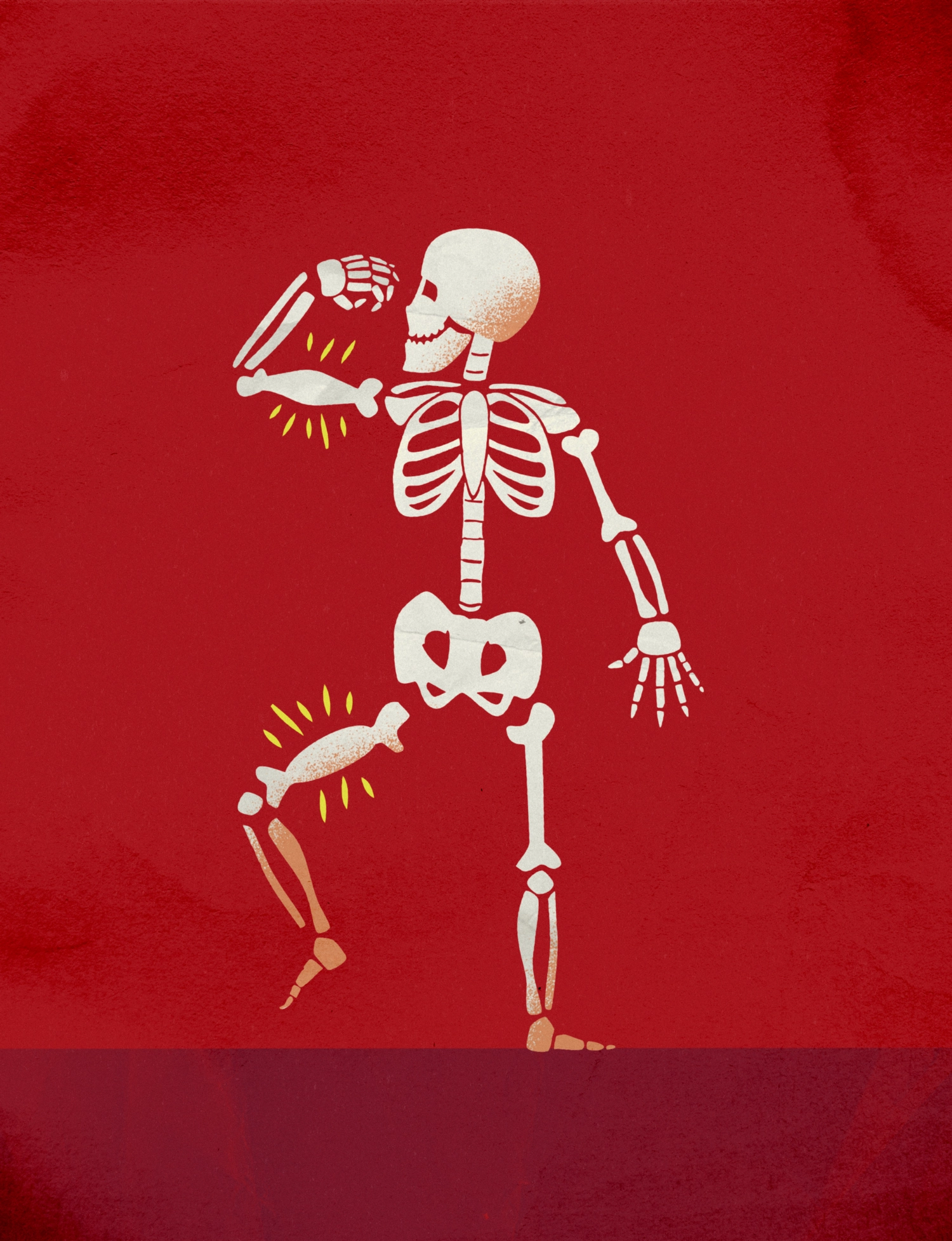Regular exercise, balance training and a healthy, varied diet can reduce the risk of developing osteoporosis.

Text: Annika Lund. Previously published in Medicinsk Vetenskap no. 3 2025 / Spotlight on: osteoporosis
Maria Sääf, researcher at the Department of Molecular Medicine and Surgery at Karolinska Institutet, answers three questions about how to build strong bones.
Can we influence our bone density ourselves?
- Lifestyle habits, such as diet and exercise, do affect bone density. However, genetics play a major role in how well the skeleton can form new bone and absorb the minerals needed to make it strong. Between 60 and 70 per cent of our bone density is determined by genetic factors. The rest comes down to how we live - how active we have been and what we have eaten. Bone density can also be affected by certain illnesses.
What kind of exercise is best?
- Put simply, weight-bearing activity is good for bone health, while balance training is important for preventing falls. Being physically active during youth is especially benificial for building strong bones, but staying active throughout life is key to maintaining bone density.
And what should you eat?
- When it comes to osteoporosis, we advise against being underweight. Otherwise, dietary advice is broadly similar to that for heart disease or type 2 diabetes, for example. It is a matter of following the recommendations of the Swedish Food Agency. For bone health, it is important to get enough protein, calcium and vitamin D.






